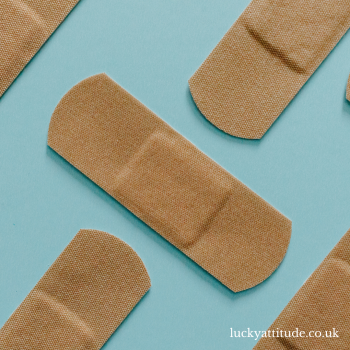How To Treat Open Skin Wounds Properly

When it comes to open skin wounds, it is important to take the necessary steps to clean and treat them properly.
Failure to do so can lead to serious infections that can be difficult to treat.
Learn how to treat open skin wounds properly in order to avoid complications.
1. Wash your hands
Before doing anything on your wound, wash your hands with water and soap or disinfectant.
2. Clean the wound
Clean the wound by gently washing the wound with water to remove all dirt and debris. Then dry it off completely.
If you are not close to the water source (or for some reason don’t want to use water), you may use a sterile saline solution to clean the wound. This can be purchased at most pharmacies.
Avoid using any kind of alcohol or hydrogen peroxide on the wound, as these can actually delay healing.
3. Dress the wound
The second step in treating an open skin wound is to dress it.
This will help to keep the wound clean and protected from bacteria.
It’s important to use a clean, sterile dressing, and change the dressing regularly so that the wound can breathe and heal properly.
If your wound is acute or you are suffering from chronic wounds, you may need to use an antibiotic ointment to prevent infection. This 3M Healthcare Tegaderm is a good option for this. Its transparent film dressing conforms to the body and flexes with skin for greater comfort. Frame style allows customization of shape and size to fit any site.
As with all medicine, follow the instructions on the package when applying the ointment to prevent any further complications.
Disinfect and dry the wound thoroughly before dressing it again. Dispose of old dressings and bandages in plastic bags
4. Apply some pressure
If the wound is bleeding, it’s important to apply pressure to the wound to stop the bleeding. Apply pressure to the entire wound, not just the edges
This can be done by using a clean cloth or gauze. Cover the area of the wound with an elastic bandage to create mild pressure. Choose a bandage that is big enough to cover the entire wound.
If you don’t have a bandage around, any cloth material that can be wrapped around the affected area, would do too.
See a doctor if the bleeding is severe or if the wound does not seem to be healing properly.
5. Protect the wound
Once the wound is cleaned and dressed, it’s important to protect it from further swelling and further injury.
Use direct pressure and elevation to control bleeding and swelling.
Bandage and pressure would help, as well as keeping the injured area elevated above the level of the heart. This will help to reduce swelling and promote healing.
Choose a bandage that is breathable so as not to trap moisture in the wound. Bandages can be purchased at most pharmacies. You may also need to use a sterile gauze pad over the bandage in order to protect the wound from further contamination.
You’ll need to keep the wound clean and dry for five days.
When to see a doctor
In most cases, open skin wounds can be treated at home.
However, there are certain cases where it’s important to see a doctor:
- an open wound is deeper than 1/2 inch
- bleeding doesn’t stop with direct pressure
- bleeding lasts longer than 20 minutes
- bleeding is the result of a serious accident
- the wound does not seem to be healing properly
- the wound has pus or redness around the wound, or if you develop a fever
These are all signs of infection and will require treatment with antibiotics.
Generally – if you have any concerns about how to treat an open skin wound, you should always consult with a medical professional.
Possible complications
Open skin wounds can be painful and unsightly. However, with proper treatment, they will usually heal without any complications.
There are some potential complications that can occur.
For example:
If the wound becomes infected, it can lead to cellulitis, which is a serious bacterial infection.
Or, if the wound is not cleaned and dressed properly, it can lead to sepsis, which is a life-threatening condition caused by infection.
Finally, open skin wounds can also lead to scarring.
Final words
Whether you have a minor or a more serious open wound, it’s important to take quick action. Some open wounds can be treated at home, but this isn’t always the case.
You need medical attention if you have a deep cut or if you’re bleeding a lot. This ensures you receive the most appropriate treatment and reduces your risk for complications and infection.
Follow the tips above to avoid any potential problems.
